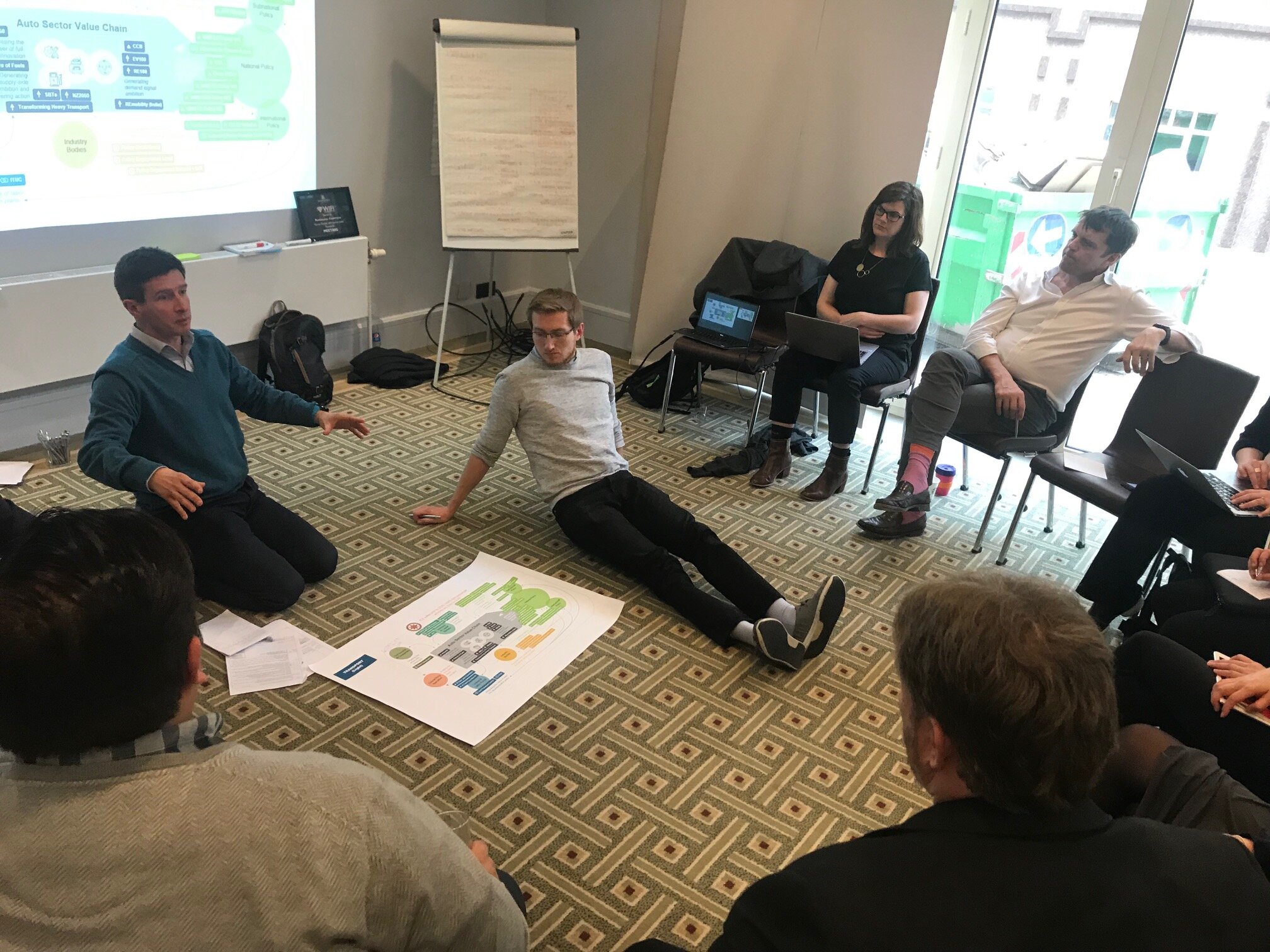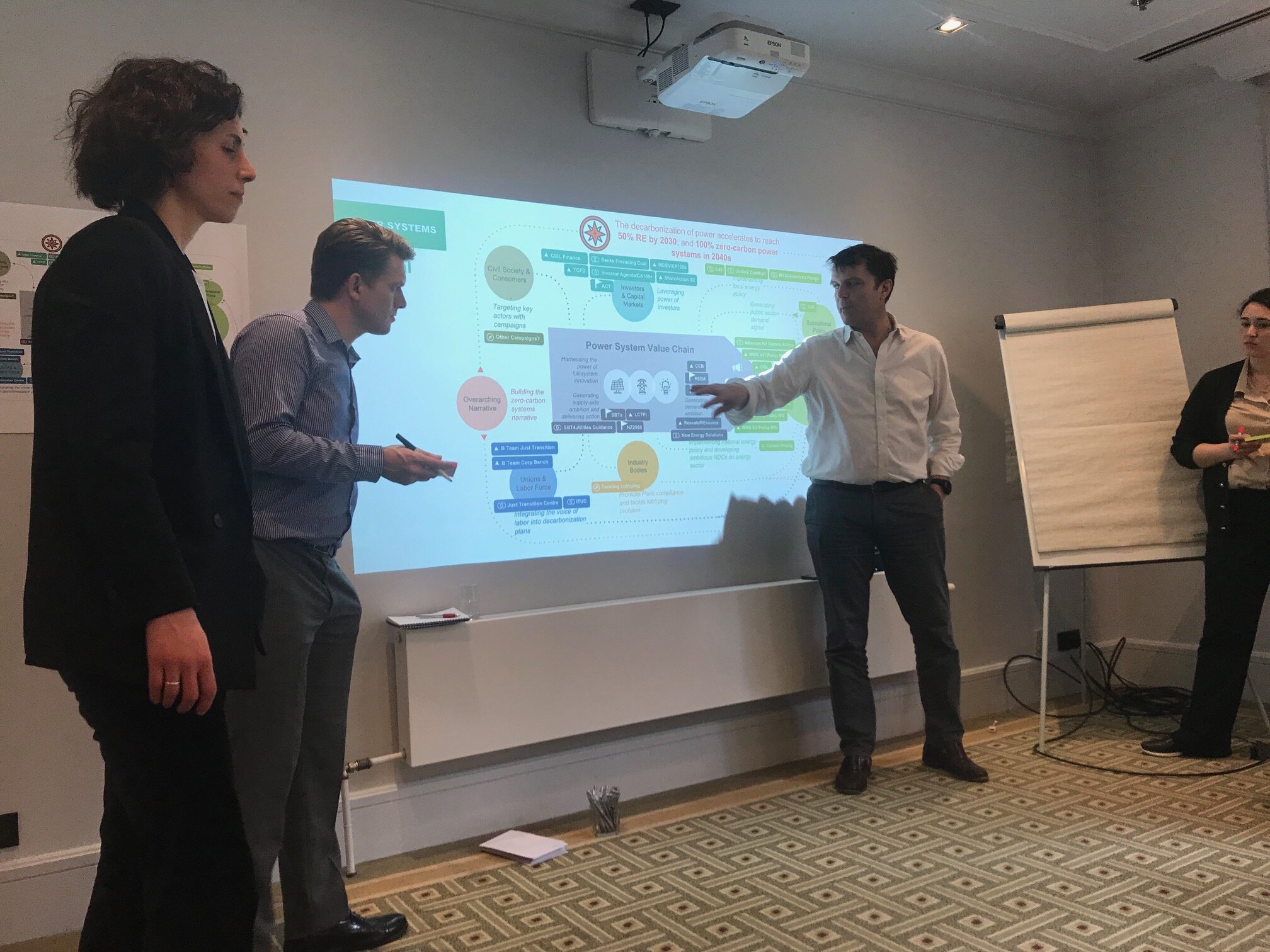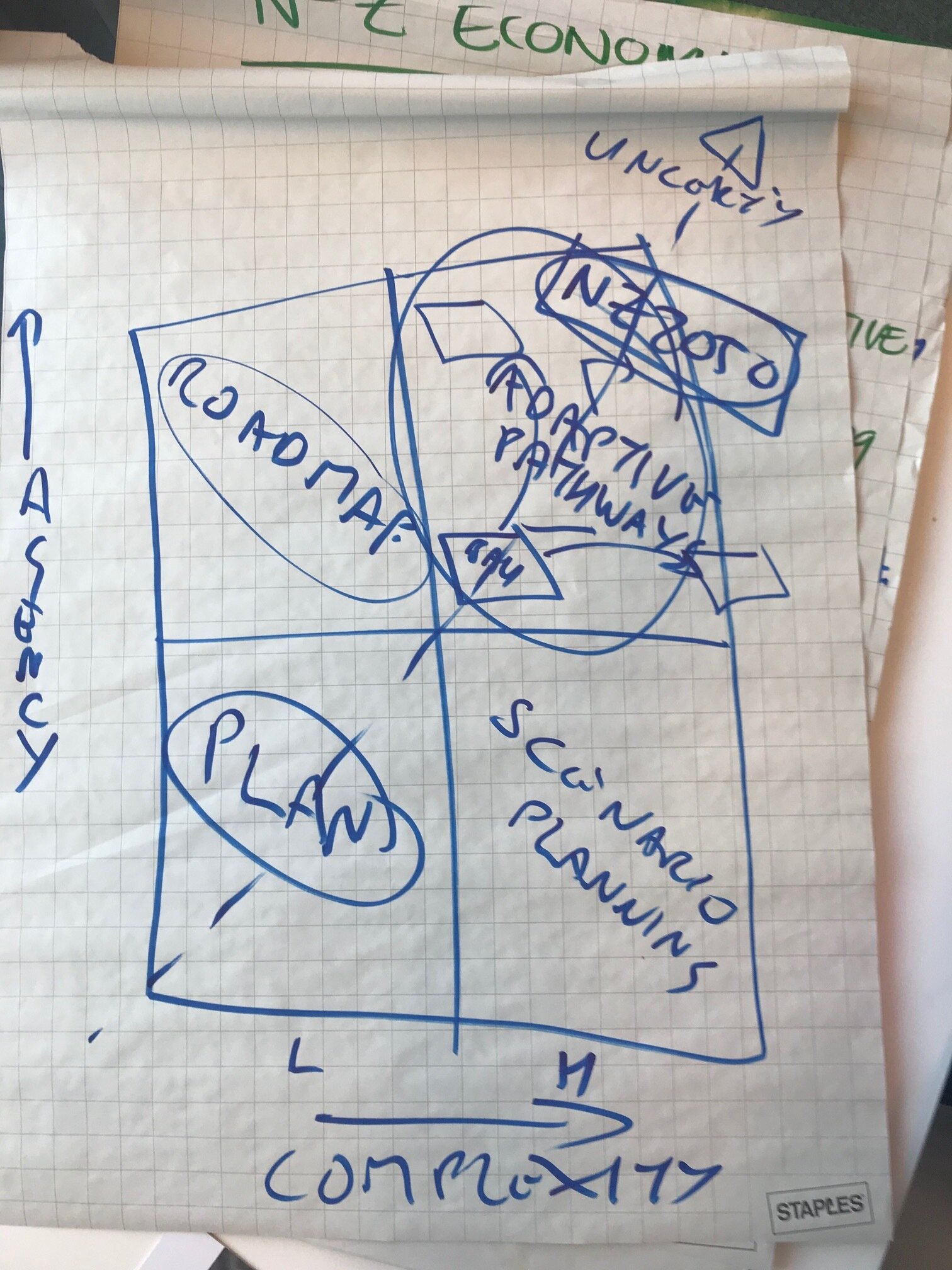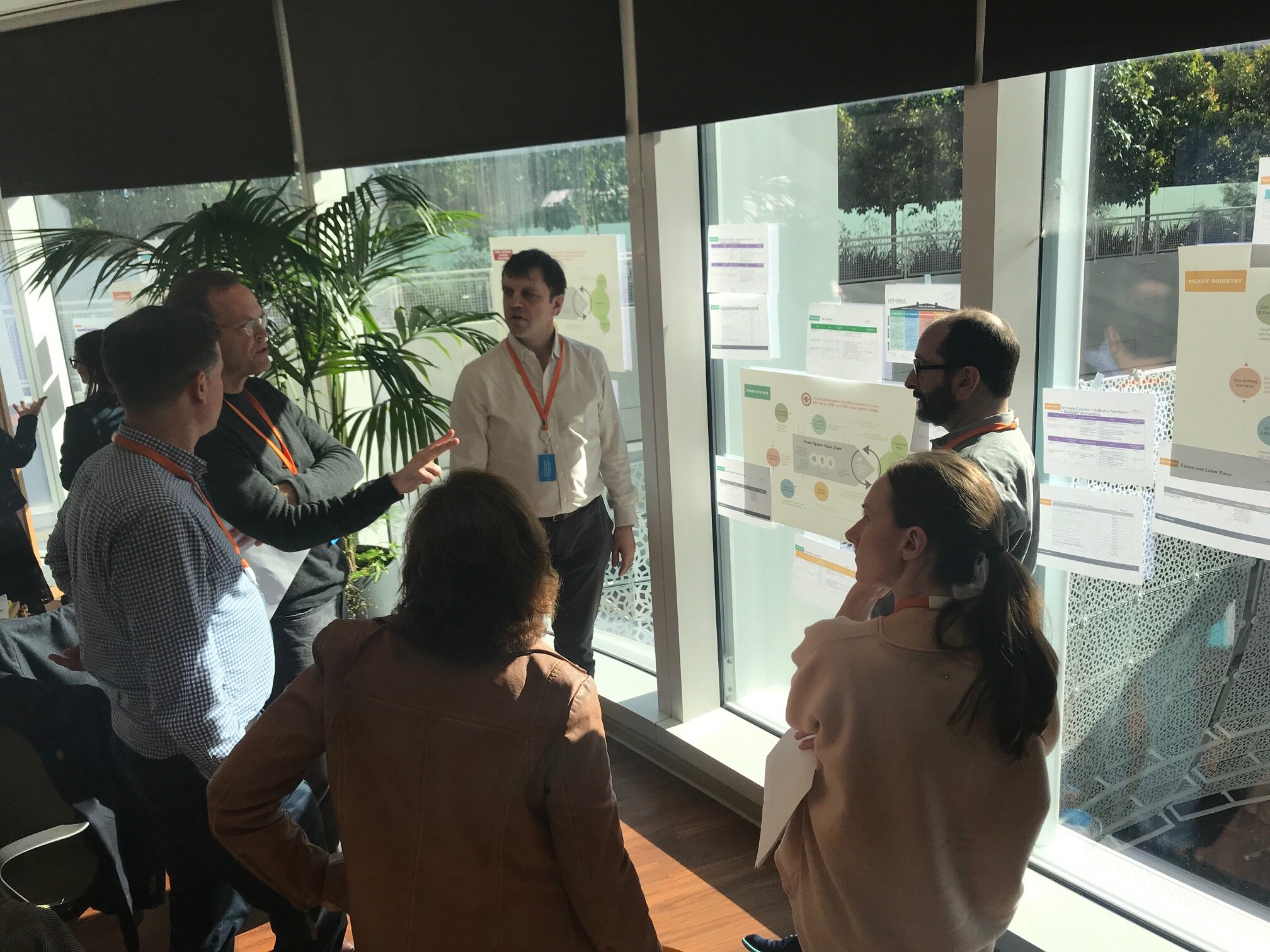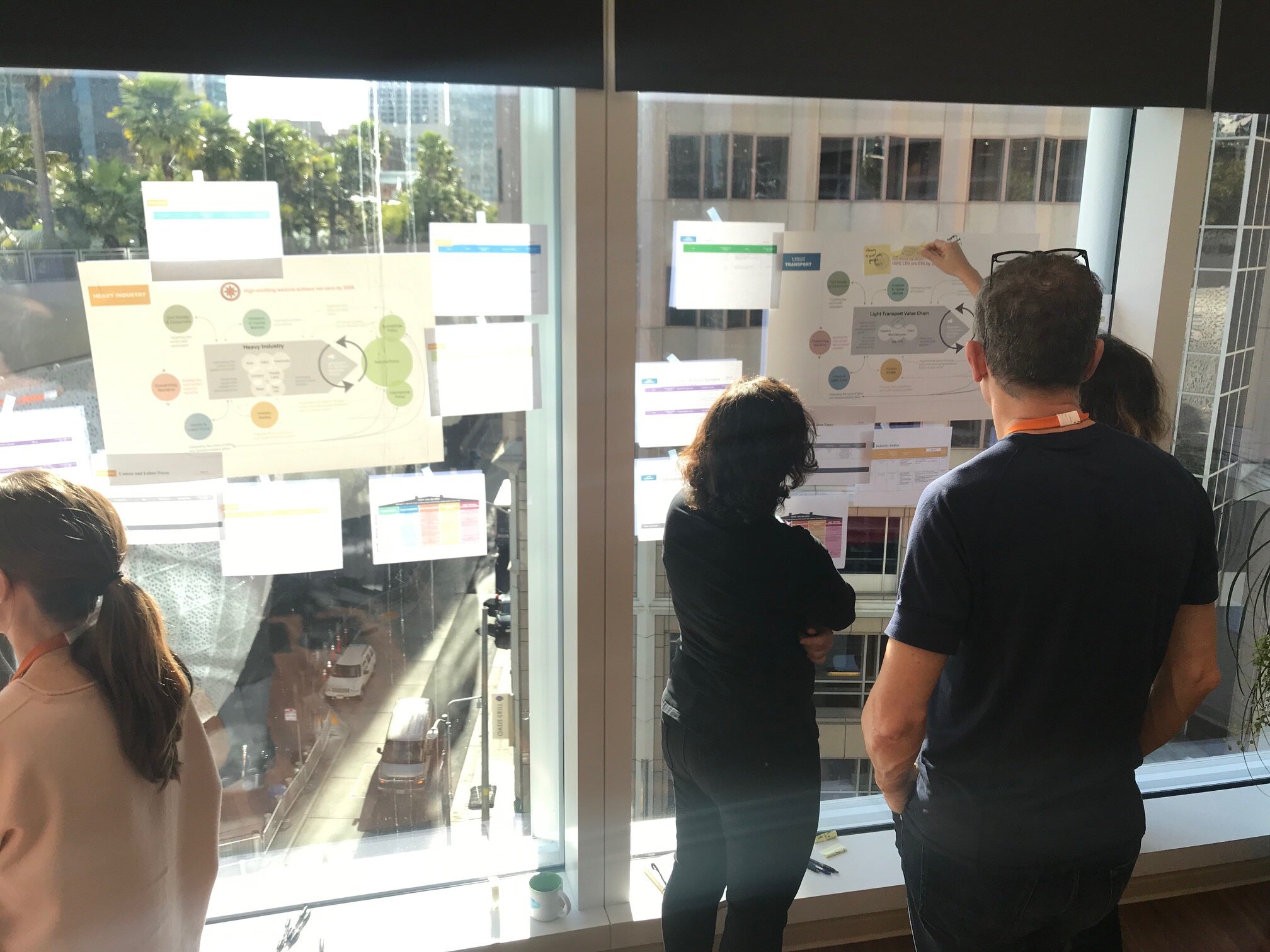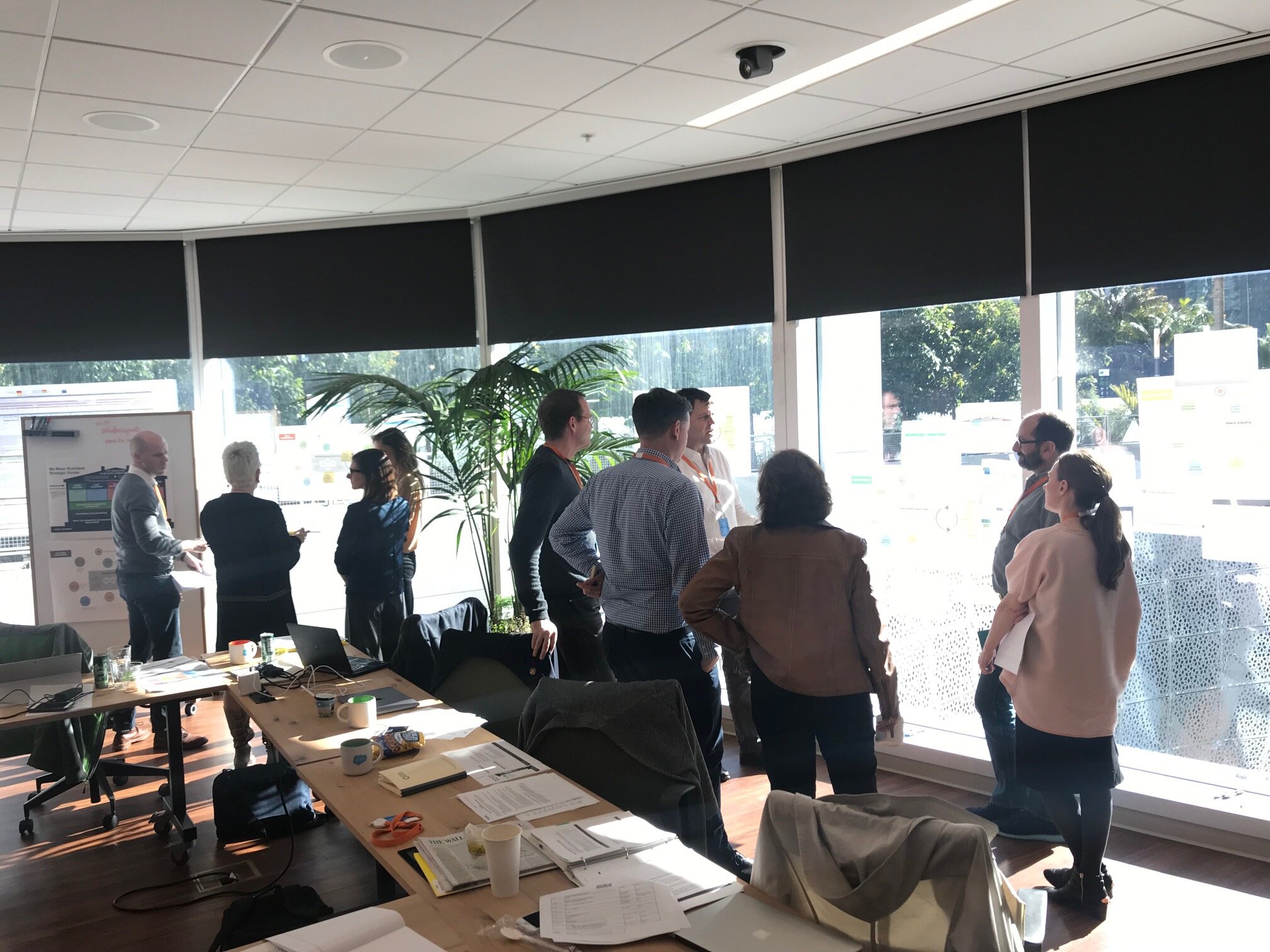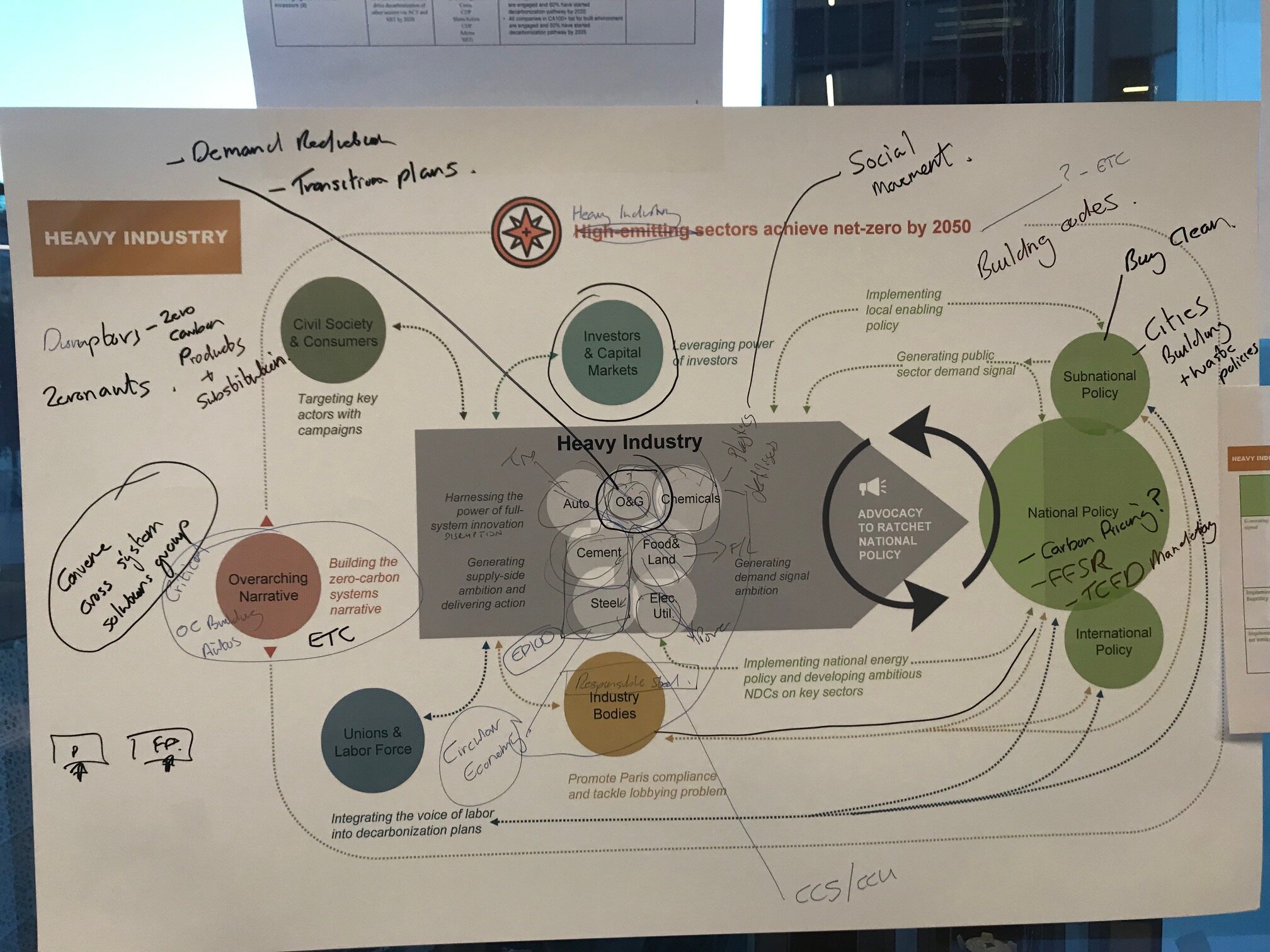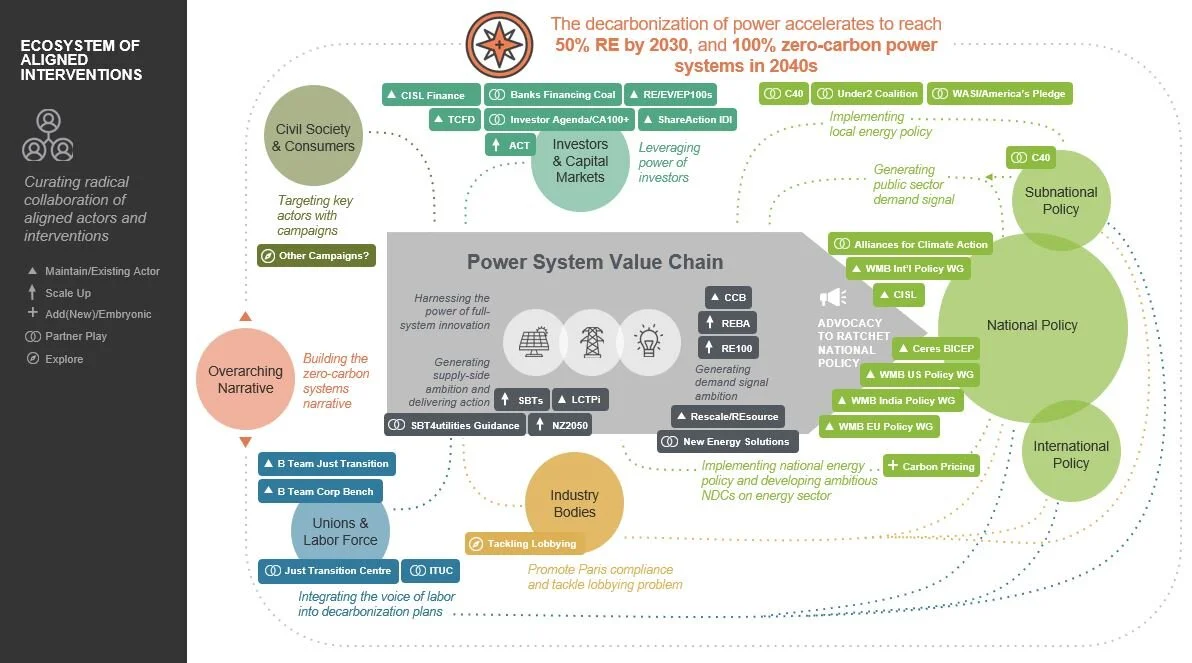Co-Creating Strategy for Systems Change
In my role at We Mean Business coalition, I manage complex partner engagement in service of executing global coalition strategy for climate action.
The transformations we are trying to affect are incredibly complex and interconnected. Responding to these challenges, I had the chance to develop the coalition's first system maps to embed systems thinking and systems change approaches. By engaging 20+ organizations we created foundational tools in the evolution of our coalition systems strategies.
With a systems lens, we were able to encourage teams and partners to view the “whole”; to see the full set of actors and market forces; understand the rest of the ecosystem of other programs plus where our programs influenced (or did not); analyze successes and headwinds; identify key leverage points to mobilize more effective global programs and ultimately set signals of change we expected to see progress.
The journey began when the coalition articulated long-term “north star” goals for each system we set out to influence: net-zero economies, energy, transport, built environment, heavy industry, and land.
Key to the north stars and bold systems transformation we seek is creating an ecosystem of interventions that are aligned with a common goal, collectively navigating the dynamics of the system. These maps were meant to depict our collective efforts towards this.
We workshopped the maps at various levels of the coalition in a co-creative process across each cluster of partners against our key systems, as well as the Partner Board (10 CEO level global leaders), and a matrixed secretariat team (system leads, policy and communications).
The maps were intended to support our collective thinking about the impact we aim to achieve as a coalition, and broader community of practice.
The maps are living documents, used as engagement tools with potential funders, the wider climate/NGO network, leading companies, and more.


